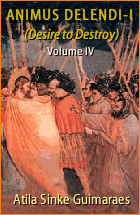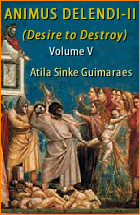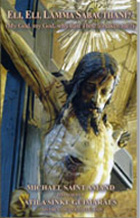NEWS: December 30, 2024
 |
 |
 |
 |
 |
 |
 |
Bird’s Eye View of the News

A GLANCE AT BERGOGLIO’S THEOLOGY –
At the beginning of this month of December, the Lateran University in Rome hosted an International Congress on the Future of Theology, bringing together some 450 participants from around the world. The event was organized by the Vatican Dicastery for Culture and Education, which asked Francis to address its attendees at the start of the conference. This audience took place at the Vatican on December 9. I am commenting on the words he addressed to the group, posted that same day in L’Osservatore Romano (p. 12).
Before entering into the text, it is interesting to observe that normally this type of subject matter – the future of Catholic theology – would be addressed by the Congregation for the Doctrine of the Faith, since it has the obligation to establish the parameters inside which future doctrine should walk. The Dicastery for Culture is turned toward promoting expositions of art and discussing modern current of thoughts, doubtless important matters but not as vital for the Church as those related to the Catholic Faith. This initial misplacement seems intended to disregard the importance of theology, and consequently of the Faith.
The program that Francis presented to the theologians could be summarized as a wish and an invitation.
The wish
The wish was for theology “to rethink the thinking.” "Thinking" here is meant to be the entire past teaching of the Church. I will translate below from the original in Italian the two main paragraphs of the Pope's address:
/bev300_Aud.jpg)
“The wish is this: that theology helps to rethink the thinking. Our way of thinking, as we know, also shapes our sentiments, our will and our decisions. A wide-ranging imagination and thinking correspond to a large heart, whereas a shriveled, closed and mediocre way of thinking is hardly capable of generating creativity and courage. The manuals of theology we studied come to my mind. Everything was closed, everything was ‘from a museum,’ from a library, without making you think.”
“The first thing to do in rethinking the thinking is to move beyond simplification. Indeed, reality is complex, challenges are multiple, history is full of beauty and simultaneously wounded by evil. When someone cannot or does not want to deal with its dramatic complexity, then he or she easily tends to simplify. Simplification, however, mutilates reality; it gives rise to empty and unilateral thoughts, and it generates polarization and fragmentation.”
In these paragraphs Pope Bergoglio recommended to the theologians of the entire world to do the opposite of what is set out in the manuals of theology from which he studied. He scorned them as “shriveled, closed and mediocre.” However, the majority of those manuals were turned toward presenting seminarians with the basics of the Catholic doctrine in the different fields of theology: dogmatic, moral, exegesis, liturgy, canon law, etc.
Thus, his general condemnation of those manuals has the net revolutionary goal of scorning and denying the 19 centuries of Catholic doctrine contained in those syntheses.
The invitation
Bergoglio also left an invitation to the theologians from around the world present in Rome:
“Now, I want to leave you with an invitation: that theology be accessible to all. … Please, if any of these persons [men and women – especially the middle aged – who desire to study theology] knocks at the door of theology, of the schools of theology, may they find it open. … Imagine new things in your programs of study so that the theology can be accessible to all.”
/bev300_Pop.jpg) Here we realize that Francis has a notion of theology different from the bi-millennial Catholic Magisterium. As a matter of fact, theology means the study of the word of God that was revealed to us through Scriptures and Tradition. The ensemble of these revelations builds the Catholic Faith.
Here we realize that Francis has a notion of theology different from the bi-millennial Catholic Magisterium. As a matter of fact, theology means the study of the word of God that was revealed to us through Scriptures and Tradition. The ensemble of these revelations builds the Catholic Faith.
The Faith is essentially made of dogmas, and accidentally of accessible truths. The essence of the Faith is made up of mysteries – the Trinity, the Incarnation, the Hypostatic Union, the Transubstantiation, to cite only a few. Therefore, if the Faith is made of mysteries, it is a non-sense to expect, as Francis does in this address, that theology has to be accessible to all.
If theology were accessible to all, it would be indirectly affirming that our Faith does not have mysteries, which is tantamount to saying that it is not divine, which in turn implies that Our Lord Jesus Christ is not God.
Nonetheless, Francis spelled out clearly that he wants a theology without mysteries.
By marketing theology as merchandise meant to be purchased by all, he expected to appear very popular, very sympathetic: Theology and the Faith should be accessible to all – beautiful! It should be a democratic Faith; it should be a “synodal” Faith… – great! No more elitist knowledge… – applauses from Progressivism!
The only problem is that by affirming these goals, the Pope places himself outside of the Catholic Church.
If theology were accessible to all, if the mysteries of the Faith would disappear, if Our Lord were accessible to all, He would not be divine, the Catholic Church would not be divine and the Pope would lose his raison d’être.
Francis actually wants a Church made to the measure of man, not of God.

Before entering into the text, it is interesting to observe that normally this type of subject matter – the future of Catholic theology – would be addressed by the Congregation for the Doctrine of the Faith, since it has the obligation to establish the parameters inside which future doctrine should walk. The Dicastery for Culture is turned toward promoting expositions of art and discussing modern current of thoughts, doubtless important matters but not as vital for the Church as those related to the Catholic Faith. This initial misplacement seems intended to disregard the importance of theology, and consequently of the Faith.
The program that Francis presented to the theologians could be summarized as a wish and an invitation.
The wish
The wish was for theology “to rethink the thinking.” "Thinking" here is meant to be the entire past teaching of the Church. I will translate below from the original in Italian the two main paragraphs of the Pope's address:
/bev300_Aud.jpg)
Two close-ups of the Congress on the Future of Theology held in the Lateran University - Dec. 9-10
“The first thing to do in rethinking the thinking is to move beyond simplification. Indeed, reality is complex, challenges are multiple, history is full of beauty and simultaneously wounded by evil. When someone cannot or does not want to deal with its dramatic complexity, then he or she easily tends to simplify. Simplification, however, mutilates reality; it gives rise to empty and unilateral thoughts, and it generates polarization and fragmentation.”
In these paragraphs Pope Bergoglio recommended to the theologians of the entire world to do the opposite of what is set out in the manuals of theology from which he studied. He scorned them as “shriveled, closed and mediocre.” However, the majority of those manuals were turned toward presenting seminarians with the basics of the Catholic doctrine in the different fields of theology: dogmatic, moral, exegesis, liturgy, canon law, etc.
Thus, his general condemnation of those manuals has the net revolutionary goal of scorning and denying the 19 centuries of Catholic doctrine contained in those syntheses.
The invitation
Bergoglio also left an invitation to the theologians from around the world present in Rome:
“Now, I want to leave you with an invitation: that theology be accessible to all. … Please, if any of these persons [men and women – especially the middle aged – who desire to study theology] knocks at the door of theology, of the schools of theology, may they find it open. … Imagine new things in your programs of study so that the theology can be accessible to all.”
/bev300_Pop.jpg)
Top, Pope Francis in the Vatican addressing the participants; bottom, greeting each one of those present
The Faith is essentially made of dogmas, and accidentally of accessible truths. The essence of the Faith is made up of mysteries – the Trinity, the Incarnation, the Hypostatic Union, the Transubstantiation, to cite only a few. Therefore, if the Faith is made of mysteries, it is a non-sense to expect, as Francis does in this address, that theology has to be accessible to all.
If theology were accessible to all, it would be indirectly affirming that our Faith does not have mysteries, which is tantamount to saying that it is not divine, which in turn implies that Our Lord Jesus Christ is not God.
Nonetheless, Francis spelled out clearly that he wants a theology without mysteries.
By marketing theology as merchandise meant to be purchased by all, he expected to appear very popular, very sympathetic: Theology and the Faith should be accessible to all – beautiful! It should be a democratic Faith; it should be a “synodal” Faith… – great! No more elitist knowledge… – applauses from Progressivism!
The only problem is that by affirming these goals, the Pope places himself outside of the Catholic Church.
If theology were accessible to all, if the mysteries of the Faith would disappear, if Our Lord were accessible to all, He would not be divine, the Catholic Church would not be divine and the Pope would lose his raison d’être.
Francis actually wants a Church made to the measure of man, not of God.
















